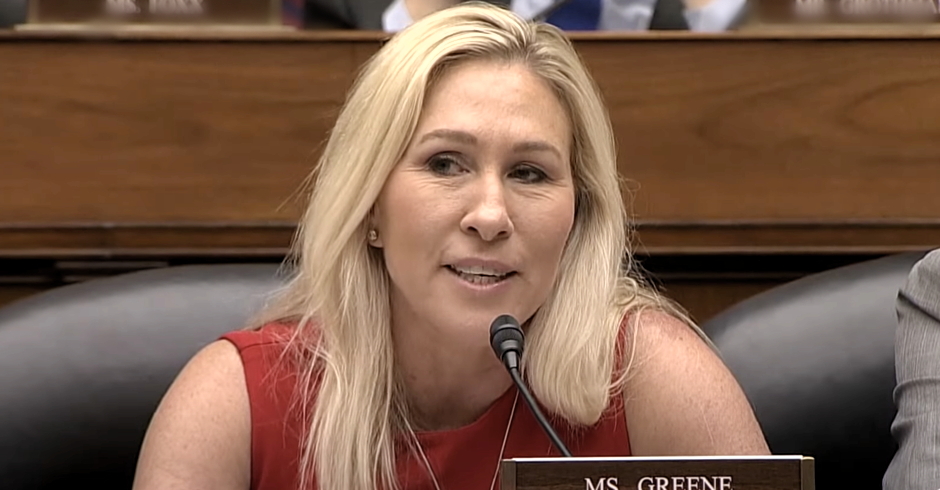I Wish I Knew How It Would Feel To Be Free: On Rise Of The Planet Of The Apes And The Help – Part II
  Go back to Part I. Continue to Part III.
2
My first real introduction to the film The Help was a movie poster I saw at a bus stop: two black women in maids’ uniforms, whispering conspiratorially, and standing beside two well-dressed white women seated on a bench. I immediately recognized the actress Viola Davis, whose work I have come to admire greatly, and I was intrigued. (I’d heard about the book, but I hadn’t read it.) I felt the usual black skepticism about Hollywood’s depiction of black life: “Will they finally get it right this time?†and tried to respond with the well-known (from movies), black good- naturedness; “Just give it a chance.â€
My second introduction to The Help was from a friend who, after seeing the trailer weeks before, wrote on his Facebook page, “I love Viola Davis, but The Help can kiss my ass and go to hell.†I wondered about his hostility, found the trailer online, and in those few minutes saw exactly what he meant. A discussion ensued, as most of us realized that Hollywood definitely wasn’t going to get it right this time, or perhaps any other time, and that this film, like so many others about the “black experience†was going to be an assault on not just our family histories, but on American history, for which we could all be outraged, white and black.
It was clear from the trailer that The Help was trying for something, but since that something wasn’t historical accuracy, I’m still not sure what that something was. What is clear is that it was created in the “chick-flickâ€, summer-vacation, drop-your-pre-teenage-daughters-and-their-friends-at-the-mall-to-get-them-out of-the-house movie romance variety, with a little civil rights back story tossed in for spice.
This cynicism isn’t mine, however. It comes from movie studio boardrooms and marketing departments, and a screenwriter, typing away eagerly at his adaptation while trying to solve a problem which has nothing to do with history, and everything to do with business: how do you create a movie about civil rights without lynching, or fire-hoses and police dogs turned on crowds, or crosses burned on lawns, or angry white men, or angry black men, or sex, or hate, or cruelty, and still find room for laughs, romance, a mother/daughter story, a spunky career-girl story, and a happy ending? Definitely a conundrum, which could only lead to the dissociated, warped script that unfolded on the screen in front of me.
Sitting in the theater for the first fifteen minutes of the film, I gave The Help a chance, thinking it would be impossible to tell the story of black maids and the houses they worked in Mississippi during the 60s, without something ringing true. And with a sold-out, rapt audience, I was eager to find out what that truth was.
But about a half hour later, a deeply unsettling feeling came over me as I began to realize that The Helpwas determined to create an all-female universe conveniently called Mississippi, where Southern violence didn’t exist. An hour later, concern became horror, as a white character, who has hired Minny, a black maid (Octavia Spencer), behind her husband’s back (she wants him to think she can maintain the house herself), suggests to her, “Maybe we could burn the chicken a little?†(so he won’t find out). With the same TV emphasis as J.J.’s “Dyn-o-mite†on Good Times, and Arnold’s, “What you talkin’ bout, Willis?†on Diff’rent Strokes, Minny all but looks out into the audience and replies: “Minny Don’t Burn No Chicken.â€
The Upper West Side audience I sat in began clapping and cheering, and I sank lower in my seat, thinking of the franchise potential of the phrase, and wondering who would be savvy enough to exploit it first – KFC or Popeye’s.
What The Help does have is great period sense – the right furniture, clothes and hair – that makes you sit in awe, as if you’d gone to a museum and it had suddenly come alive. Which is another reason why the movie can get into one’s consciousness and confuse things. Older people who grew up during the period may know they are watching candy, but children may see The Help as authentic, as documentary. The Southern women presented to us are all in perfect shape and ready for the cover of Elle. No fat Southern women here, no physical grotesques or eccentrics like in the fiction of Flannery O’Connor, Truman Capote or Harper Lee, and no “crackers†either. Poor whites, like Mayella Ewell inTo Kill A Mockingbird just don’t exist in this movie. Because the film and the people in it are beautiful, the shots filled with light, and the racism is friendly, The Help has all the racial immediacy and power of the two months old magazine you half read in the beauty parlor while sitting under a hairdryer. You can follow the minor persecutions of the black characters by whites in the movie and still think, “Gosh, I love her hair like that,†“That green dress is beautiful against her skin…†“I wonder what’s in that fried chicken recipe?â€
Near the end of the film, Minny’s employer finally learns how to cook on her own, and presents Minny with a dinner she has prepared, including fried chicken done all the way through with no red parts. The movie shows us Minny sitting down to the meal, and the white couple she works for standing back and watching proudly, while the voice-over tells us that the food is so good (and filled with love, presumably) that Minny finally finds the strength to leave her abusive husband (whom we’ve never seen.) At this point, I looked around at the other members of the audience as if we were in the Twilight Zone, and instead of shock, or anger, found rapturous and delighted faces illuminated by the screen.
I take the risk of turning off some white readers at this point, and perhaps a few black ones. For those who loved the book, the loyalty borders on absolute devotion. Stockett does have an ear; some of the sentences in the book ring true, even if the situations do not. And that’s part of the problem. With the maids’ voices written in the first person, readers may take Stockett’s conceit, of a white woman who publishes the authentic stories of black women, as the actual book they are holding in their hands, blurring fiction and reality in an irresponsible way. The book boasts a legend that sixty agents rejected the material, ignoring the fact that, while we may often feel empathy for unpublished writers who keep trying, some manuscripts are rejected for a reason. (Flannery O’Connor once said, “Everywhere I go, I’m asked if I think the universities stifle writers. My opinion is that they don’t stifle enough of them. There’s many a bestseller that could have been prevented by a good teacher.â€) As of August 2011, The Help has spent over 100 weeks on the New York Times Best Sellers List, and of course it’s flying off the shelves, it’s a civil-rights Valley of the Dolls; Jim Crow South the way we wished it might have been. As the movie plays to packed theaters, it is quite clear that The Help is reaching the status of cultural phenomenon – making our resistance and outrage appropriate and critical.
I am also anticipating the reader who becomes exasperated with this kind of analysis of film, thinking it unworthy and a waste of time because, “Hey, it’s only a movie.†As Susan Sarandon said about film in Vito Russo’s The Celluloid Closet:
“Oh, movies are important and they’re dangerous because we’re the keepers of the dreams. You go into a little dark room and become incredibly vulnerable – on one hand all your perspectives can be challenged, you could feel something you couldn’t feel normally. It can encourage you to be the protagonist in your own life. On the other hand it can completely misshape you.â€
In a narcissistic society, the mirror that reflects you is the television and movie screen, and if you don’t see yourself in the accepted cultural image, you don’t exist. Which is the reason that, like Charles Brown trusting Lucy not to yank the football one more time, blacks come to the movies to see their experience portrayed, and are disappointed year after year. We are starving for portrayals of authentic black life, and may even munch on a thick piece of corn pone like The Help and say it’s great in order to justify our wasted money and time, or to support black actors we admire. And what’s the alternative, the Soul Planes, Barbershops and Madea?
We sat through Mississippi Burning in the 80s, an awful, brutal film that was a racist assault in itself. In that movie we were told black people were getting their heads bashed in and victimized until the FBI started the Civil Rights Movement. I know I saw Ghosts of Mississippi about the shooting of Medgar Evers, but all I can honestly remember about the entire film was the outrageous, drag-queen-sized wig that Whoopi Goldberg wore as Myrlie Evers; ridiculously large, and obviously designed to cover up Ms. Goldberg’s dreadlocks, that wig would have been a liability to any serious freedom fighter on the go simply because of its weight. Years before, Cry Freedom introduced a mainstream public to Steven Biko, a South African freedom fighter who died in police custody, and the white journalist who covered his story. For the first half of the movie there are riveting scenes of Denzel Washington on the witness stand, testifying about cruelty in South Africa. Then halfway through the movie, Biko disappears and it becomes the story of a journalist on the run with his manuscript about Biko. Pauline Kael, movie reviewer for The New Yorker, called the movie “dumbfounding†and wrote “The (white) family escape story recalls The Sound of Music.â€
The movie studios patronize us because they don’t trust us; assuming a heroic black story won’t be dramatic or financially successful enough without a white tour-guide, the lawyer, the white best friend, the “voiceoverâ€, someone to whom the audience can “relate†and who helps mitigate the potential force of unfiltered black anger unleashed on a white audience. So after watching the trailer of The Help I thought, “Great, now we get to find out that Martin Luther King, Jr. and Rosa Parks didn’t lead the Civil Rights Movement after all. It was actually a young white woman in her early twenties writing for her local newspaper who, after interviewing the black maids in her town, helped raise their consciousness and understand the need to change their lives.â€
(I remember in 3rd grade begging my mother to take me to the movie Grease. She relented, but reminded me as we left the theater, “They didn’t dance like that in the fifties; in fact, they barely danced at all. We danced like that.†I remember at the time being slightly annoyed that she was raining on my parade: I just wanted to be cool, and see Grease like all my friends. And since there wasn’t anything factual on TV or in the movies to challenge my fantasy, I accepted what I saw as truth.)
And that’s my fear about The Help – that there will be millions who see this film, and think that the worst thing black maids in white households had to deal with during Jim Crow were petty white women in bouffant hairdos; white women who were about as dangerous as the popular girls in high school who sulked because they didn’t win Homecoming Queen. Where is the feature film, by an A-list director, that really tells the story of the true terror and heroism of that era? (No one say Eyes on The Prize. While beautiful and brilliantly done, Eyes isn’t fiction, and fiction, paradoxically, has its own truth, allowing one to absorb the material in a way that perhaps documentaries or even real-life bio-pics can’t.)
I knew that no matter what soured ideas The Help proffered, what would be fresh and nuanced was Viola Davis’ performance. When Skeeter (Emma Stone), who has decided to interview and publish the stories of the black maids who will talk to her, asks Davis’ Aibaleen what it is like to raise white children, knowing that it means time away from her own, Davis pauses and looks out the window, and there is more history and pain in the circles under her eyes, the haunted, hollow look on her face in those seconds, than in the entire remainder of the film. Viola Davis never loses her grip on the character Aibileen, but the movie simply can’t contain her; and in fact, the conviction of her performance makes the film all the more ludicrous. A lesser or more histrionic actress might have distracted us with her “effectsâ€, but Viola Davis is all quiet, a vortex, and with all the indicating and broad, low comedy acting around her, she seems to be in a completely different movie – the one I wanted to watch.
But you take what you can get, and black audiences have done so since the movies began. When Sidney Poitier’s escaped convict jumped off the train, sabotaging his own freedom to save Tony Curtis in The Defiant Ones, black audiences were outraged and bewildered. But even with the ridiculous, “We Are The World (When We Go Down the Drain Together)†ending, the rage and dignity in Poitier’s performance, and the “Bowlin’ Green, Sewing Machine†song he sings throughout the film, speak to the blues tradition of irony and dislocation, and tell a moving black truth.
We were encouraged to watch Lana Turner’s costume-changes and jewelry in Imitation of Life, but watched instead the unconditional love of Juanita Moore’s Annie Johnson, faithful and compassionate to her daughter Sarah Jane who has been psychologically ripped apart by racism, and is “passing†as white. When Sarah Jane chases her mother’s casket at the end of the film, begging for forgiveness, we are chasing that casket too, trying to understand our own mothers, why we resented them for not protecting us from racism, and ashamed that they couldn’t always protect themselves. Sarah Jane feels humiliated by her mother’s being a black maid because in the paradigm of a racist society Annie is economically powerless, not white, and, as Sarah Jane defines her, nothing. It is only after she dies that Sarah Jane can truly see how powerful her mother was; that her ability to love and forgive, despite the cruelty she has seen, and never to stop loving Sarah Jane, makes her spiritually majestic, all-powerful. I don’t know if that was what Douglas Sirk intended, but it is in Juanita Moore’s heart-wrenching performance.
And Ethel Waters in Pinky, and Member of the Wedding, Morgan Freeman in Diving Miss Daisy, and Cicely Tyson in everything: there is a truth in these performances, whether the movies are honest or not, a direct communication. Without uttering a line, Samuel L. Jackson has a face that no slave-master would ever turn his back on. When Forrest Whittaker’s thief watches the money blow away in the last two minutes of the foolish Panic Room, the look on his face tells me more about black people, and dreams, and money, and despair than any other movie I’ve seen. And Training Day could have been just another black/white cop film, but in Denzel Washington’s hands, Dectective Alonzo Harris becomes Shakespeare. Cicely Tyson appears in The Help at one point as Skeeter’s family’s maid, fired after decades of service and having raised Skeeter from an infant. Tyson is an actress who can tell the history of a people simply by the way she lifts her chin or crooks her finger. Her presence in The Helpelevates it considerably, giving it some pedigree; but with less than ten minutes of screen time, she can’t redeem it, only making one wistful for her acting career, and for a time when TV, at least, seemed interested in saying something about the black experience with Roots, A Woman Called Moses, andThe Autobiography of Miss Jane Pittman.
It is always a pleasure to see veterans like Tyson, and, also in the film, Sissy Spacek. While her part as the mother of the most monstrous of the Southern belles, Hilly Hollbrook, is wasted, Spacek does have a funky laugh that is the blackest and freest thing going on in The Help. Spacek is not a stranger to this Civil Rights genre, having starred in the underrated The Long Walk Home, a movie, one could argue, where Hollywood got it right for once. In that film, she plays Miriam Thompson, a Southern woman with privilege, who, after becoming more conscious about what is happening in her town of Montgomery, Alabama in 1955, decides to become one of the white women who offers rides to black maids during the bus boycotts. The film is rare in that equal time is given to the white and black families, so that when Goldberg’s Odessa Cotter arrives at work, we know who she has left, and who is waiting for her when she gets home – what that “Long Walk†means to her and her children. When Miriam decides to join the car pool, we are aware that the decision may cost her a lot more than her marriage. This is a movie of heroes, black and white. The film ends with a confrontation in a parking lot where Miriam’s brother-in-law, part of a group of white men who have come to break up the car pool with baseball bats, hits her in front of her child, and with the others begins to intimidate a group of black women waiting for rides, while chanting “Walk, Nigger, Walk.†One should see the film, if for no other reason, because of the miraculous moment that takes place in its finale. As the men terrorize the group of women, a black woman steps from the crowd with her hand extended and begins to sing a hymn. Soon the other women join her. There is no way this can read on the page as effectively as on the screen. The women begin to sing in the style that I identify with Bernice Johnson Reagan and the group Sweet Honey In the Rock, tapping into the “Holy Ghost†power of the Civil Rights Movement. Until that scene, I hadn’t completely understood the supernatural energy that flowed through the Movement, the role played by faith, and the victory of spiritual beauty over evil. The song neutralizes the white men (perhaps reminding them of songs sung by the black women who raised them) and has the same effect as the 1963 historic march in Birmingham, Alabama when Bull Connor, Commissioner of Public Safety, called for his firefighters to open hoses and unleash police dogs on the crowd of young people, who knelt in prayer and sang. When the police and firefighters saw the faces and heard the singing, they refused the orders, some of them even crying. Dr. King later said, “It was one of the most fantastic events of the Birmingham story. I saw there, I felt there, for the first time, the pride and the power of nonviolence.”
To someone else’s sensibility, it may be a triumph that a movie about race created in 2011 doesn’t have the word nigger in it, but a 1960s Mississippi without the word isn’t Mississippi, nor America. It’s not even America in 2011. When Minny comes into the house of her prospective employer for the first time and sees the chaos, she says, loud enough for the woman to hear, “What the hell?†recalling Oprah Winfrey as Sofia in Steven Spielberg’s The Color Purple, saying “Hell naw†to Miss Minny, the mayor’s wife, who has asked Sofia to be her maid. For her backtalk to whites, Sofia is struck across the face by the mayor. When she hits him back, she is surrounded by a violent mob, and eventually the sheriff who, instead of helping her to safety, hits her with the butt of a gun, knocking her unconscious. Sophia is imprisoned for eight years without seeing her children. The Color Purple was often criticized for not being the most accurate depiction of the South during the 30s, but it was at least remotely recognizable. (A friend of mine in the 80s watched The Color Purple with her grandmother who said afterwards, “That’s exactly how it was.â€)
The issue isn’t that Minny is sassy – so is Sophia; the problem is that her sassiness has no context, no basis in reality, so it isn’t empowering, just a meaningless stunt by moviemakers. In a South where Emmett Till was murdered for flirting with a white woman, blacks feared violent reprisals for the smallest “infractionsâ€: not moving aside when a white person passed, forgetting to add a “yes, sir†in answer to a request, direct eye-contact. The problem of Minny’s behavior as a character is not just that she’s lazily conceived; it’s revisionist, and disturbing, and creates a fantasy South where black women say and do whatever they want to white women with no fear of retaliation.
I was truly appalled by The Help when I realized where the story was eventually going: Minny, fired because she has used the white family’s toilet instead of an outhouse created for her, exacts revenge on her employer by feeding her one of her famous chocolate pies, secretly filled with her own feces. The white employer, Hilly Hollbrook, finds out because Minny tells her, in front of her own mother, “Eat my shit.â€
Rise of the Planet of the Apes may not be “blaxploitationâ€, but The Help certainly feels like it – a black person’s revenge fantasy, or a white person’s fantasy of what a black person fantasizes. Like those people who say -and there’s always one -“I don’t know why anyone would be a slave. Me? When the master said ‘Boy, go pick that cotton’, I’d have told him to kiss my black ass.†The idea of an oppressed maid exacting revenge on her cruel boss is dramatically interesting, perhaps even justified, but only if we believe the context surrounding the insurrectionary act.
When the book is published in the film, and Hilly is publicly humiliated and ridiculed, if this is the Mississippi of history books and family lore, we know the hysteria to come: someone is going to pay for Minny’s action and, if it is not Minny, it will be one of her children or someone randomly chosen – a woman defiled in the street, a cross burned on a lawn, a church bombed. Minny’s behavior is more than irresponsible – as a woman with children and a relationship to her community, it makes her psychotic not to consider the consequences of her behavior in the South, or anywhere. Because the movie presents her action as little more than a practical joke, and audiences laugh with her, we have no sense of the danger she faces and are invited to share in this delusion. When the movie ends, Minny and Aibileen (hate that name! Was Stockett aware how close it is to the name of a popular make-up remover?) reassure Skeeter who is off to New York and worried about leaving the two black women behind to deal with the fallout – “You listen to me, Miss Skeeter. I’m on take care a Aibileen and she gone take care a meâ€, and, “them bad things gone happen whether you here or not…so don’t walk your white butt to New York, run it”, the three stand together laughing and framed by glowing sunlight. Something really insane is going on.
Aibileen loses her job, but, more importantly to her, the relationship to the white child she loves. As she walks away from the child banging on the window at the end of the picture, past trimmed lawns that recall Beverly Hills more than Mississippi, the camera pans over her in a Mary-Tyler-Moore “You’re Gonna Make It After All†style. Viola Davis moves us with her tears, but by this point, if you’ve been looking for a civil rights movie, or any movie at all, you’re completely numb. Or at least I was. But when the lights went up, everyone clapped, smiled at each other and gathered their things to go home.
The Help is a movie about race in Mississippi with no consequences, because race and consequences make movie audiences nervous. Which means The Help isn’t a story about Mississippi, or racism, or black women, or white women, or anything, or anybody. Do audiences come away from this movie saying, “Isn’t it amazing how those maids fought back!â€, or do they think wistfully, “I wish I’d had a black maid who loved me like Aibileen.†(Aibileen tells all the white children she raises “You’s Kind, You’s Special, You’s Important.â€) We never see an Aibileen who is frustrated with a white child, or wants to strangle it because the kid may turn out to be just like one of the women she works for. Aibileen is always kind, always patient. The script makes her low energy the result of grief, but that’s too easy. Aibileen, (with the exception of a few lines), has almost no growl, not even in private when white people aren’t looking. Which means her devotion is total – she is Mammy.
I would love to dismiss a movie like The Help as just another Hollywood flick gone awry, but it’s more sinister than that. When trying to understand the nature of human cruelty, while it is probably futile to rank persecutions, one would definitely argue that Jim Crow in the South contained some the cruelest treatment of human beings in history. The Help goes from being inept to diabolical when we don’t see the cruelty, because someone stands to make less money from the film if they put it in. So what we end up with is a “feel –good†civil rights movie. It is inconceivable to me that someone would make a film about Nazi Germany without brutality, a story about Jewish women and a Nazi officer’s wife who befriends them and wants to hear their stories, with none of the “ickiness†of concentration camps, or gas chambers, or mass genocide. Civil Rights deniers are next. “Really? That many lynched….that seemes exaggerated to me: I saw the Help and it wasn’t that bad in Misssissippi….â€
And how can you blame the children who watch the film for thinking this way, children who are learning about Civil Rights for the first time? The white men in The Help are innocuous, like something out of The Honeymooners or I Love Lucy, sitcom white men who look at their watches and have to go when things get a little heated with the black maids and their wives. These are not the white men or their sons as depicted in lynching photographs. What universe does The Help exist in? If the scariest thing a black woman had to face in Mississippi during the 50s and 60s was angry looks from her white employer’s bridge club, what does it mean for Rosa Parks to refuse to move to the back of the bus, or for Fannie Lou Hamer, despite being brutally beaten for exercising her right to vote, to have said, “The only thing they could do to me was to kill me, and it seemed like they’d been trying to do that a little bit at a time ever since I could remember.” In an interview that Viola Davis gave with Moira McDonald of the Seattle Times, Davis said she also based the character, “very, very loosely” on Hamer, who was born the same year as Aibileen, in Mississippi. Watching the film, you can see the love for women like Hamer in Davis’ performance, but anything resembling Hamer’s life, or the evil she faced, ends there.
We come to art, to literature, to film, to understand ourselves, to understand how to love. And, of course, to be entertained, which is sometimes reason enough. But when our need to be entertained is so great that we distort facts, only allowing in what we want to see, then our relationship to that art becomes pathological.
 Go back to Part I. Continue to Part III.
 Max Gordon is a writer and activist. He has been published in the anthologies Inside Separate Worlds: Life Stories of Young Blacks, Jews and Latinos (University of Michigan Press, 1991), Go the Way Your Blood Beats: An Anthology of African-American Lesbian and Gay Fiction (Henry Holt, 1996) and Mixed Messages: An Anthology of Literature to Benefit Hospice and Cancer Causes. His work has also appeared on openDemocracy, Democratic Underground and Truthout, in Z Magazine, Gay Times, Sapience, and other progressive on-line and print magazines in the U.S. and internationally.
Max Gordon is a writer and activist. He has been published in the anthologies Inside Separate Worlds: Life Stories of Young Blacks, Jews and Latinos (University of Michigan Press, 1991), Go the Way Your Blood Beats: An Anthology of African-American Lesbian and Gay Fiction (Henry Holt, 1996) and Mixed Messages: An Anthology of Literature to Benefit Hospice and Cancer Causes. His work has also appeared on openDemocracy, Democratic Underground and Truthout, in Z Magazine, Gay Times, Sapience, and other progressive on-line and print magazines in the U.S. and internationally.

Enjoy this piece?
… then let us make a small request. The New Civil Rights Movement depends on readers like you to meet our ongoing expenses and continue producing quality progressive journalism. Three Silicon Valley giants consume 70 percent of all online advertising dollars, so we need your help to continue doing what we do.
NCRM is independent. You won’t find mainstream media bias here. From unflinching coverage of religious extremism, to spotlighting efforts to roll back our rights, NCRM continues to speak truth to power. America needs independent voices like NCRM to be sure no one is forgotten.
Every reader contribution, whatever the amount, makes a tremendous difference. Help ensure NCRM remains independent long into the future. Support progressive journalism with a one-time contribution to NCRM, or click here to become a subscriber. Thank you. Click here to donate by check.
 |

















